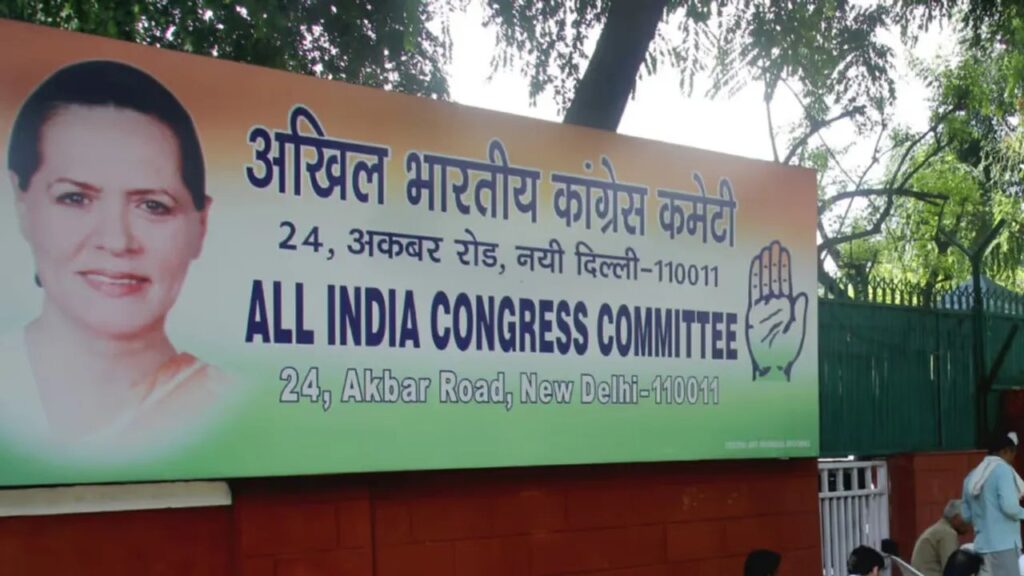Delhi witnessed a historic moment on Wednesday as the Congress party officially moved into its new headquarters, the Indira Gandhi Bhawan, located on Kotla Road. This marks the end of an era at its previous address—24, Akbar Road—which has served as the party’s headquarters for the past 47 years.
The shift to Kotla Road signifies a new chapter in Congress’s history. The party’s long association with Akbar Road began in 1977 when a distraught Indira Gandhi, following the Emergency and the party’s subsequent loss in the elections, relocated her faction’s office to a Type VII bungalow on Akbar Road, a government property. At the time, the Congress was reduced to just a handful of loyalists.
Over the years, 24, Akbar Road became witness to several significant events in India’s political landscape. It saw Congress’s revival under Indira Gandhi, her return to power, the tragic death of her son Sanjay Gandhi, her own assassination, and the rise of Rajiv Gandhi, who assumed the Prime Minister’s office at a young age. The bungalow also bore witness to Rajiv’s tragic assassination in 1991 and the party’s gradual recovery, particularly as it led coalition governments in 1991, 2004, and 2009.
The Akbar Road property itself has a rich, nearly 100-year history. Before becoming the Congress headquarters, it was the residence of Sir Reginald Maxwell, a member of the Viceroy’s executive council. During the 1960s, the bungalow was also home to the Burmese ambassador, and it was there that Nobel Peace Prize laureate Aung San Suu Kyi spent her early teenage years.

Journalist and political commentator Rasheed Kidwai, in his book 24, Akbar Road: A Short History of the People Behind the Rise and Fall of Congress, details how the bungalow came to be the party’s headquarters. According to Kidwai, the property was allotted to G. Venkataswamy, a Rajya Sabha MP from Andhra Pradesh, after the 1977 elections. With few resources and no office space, Indira Gandhi decided to use the bungalow as the party office. The building, then in poor condition, was barely furnished and surrounded by an overgrown garden.
Congress MP Tariq Anwar, who worked at 24, Akbar Road for many years, reflects on his time there. “It all started as a temporary office after the split, but we remained there. I have seen the party’s many highs and lows at this address and have numerous memories attached to it. I will miss the old office but hope this move marks a new beginning for the party,” he said.
Kidwai’s book also notes that during Rajiv Gandhi’s tenure as Prime Minister, he expressed interest in relocating the headquarters to a more modern space on Dr. Rajendra Prasad Road. However, this plan was never realized due to his untimely death in 1991. Over the years, several additions were made to the original structure at 24, Akbar Road, as the party expanded. The building now houses about 30 rooms, many of which were added at the rear of the property.
Jai Prakash Agarwal, a former MP and Youth Congress office-bearer, recalls his frequent visits to the Akbar Road headquarters. “As the Congress party’s fortunes improved, the headquarters expanded and underwent many changes. The main building housed the Congress President’s office and those of senior functionaries, while the back rooms were used by other office-bearers,” Agarwal said.
Today, the Congress party begins a new chapter with the inauguration of its new headquarters at Kotla Road. The inauguration ceremony was attended by senior leaders, including Congress President Mallikarjun Kharge, Congress Parliamentary Party Chairperson Sonia Gandhi, Leader of Opposition in the Lok Sabha Rahul Gandhi, and other prominent figures.
The premises at Kotla Road will serve as the central office of the Congress party, while the old 24, Akbar Road address in Lutyens’ Delhi will continue to host affiliated units and high-profile meetings.



